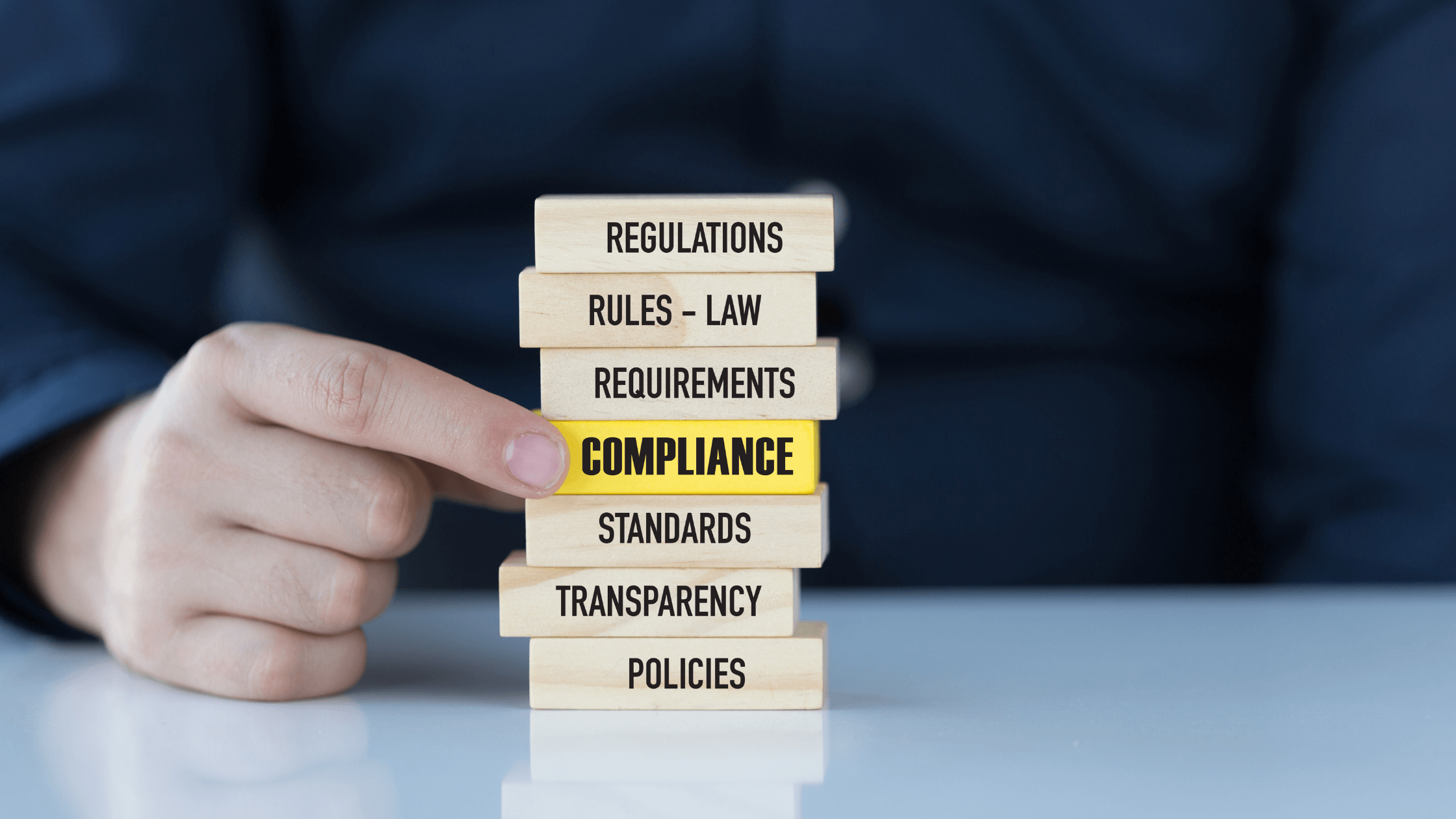We come across instances of compliance violation on a day-to-day basis. Let’s understand the consequences with a simple analogy.
Imagine enrolling your child in an online coding class. You have checked reviews and paid the fees upfront…everything looks good. The teacher shares the schedule and your child attends the first class. Once the class ends, they share the recording with you—nothing fishy so far, right? Here’s a catch: the teacher never took your consent to record your child during the online class. Sounds scary? Don’t write it off just yet.
Here’s another example in a business context: You have created a chemical formula that turns liquid into a powder state. The chemical can be used in portable urination bags. You approach a third-party coordinator to introduce you to a mass market sanitary product manufacturer. Unfortunately, you become a victim of patent theft as the coordinator steals your formula.
The business process outsourcing (BPO) industry follows the most number of regulations after the banking, financial services and Insurance (BFSI) sector. After all, if you outsource parts of your business, you’d want to be certain your information is not being stolen. Violations, however, are not uncommon.
Outsourcing compliance is becoming mandatory and increasingly pervasive with time. Business process regulation (BPR) is the new burdensome truth many business owners are still grappling with for instance, the US Food and Drug Administration (FDA) and the Drug Enforcement administration govern manufacturers with regards to the creation, efficacy, safety and distribution of medicines and medical devices.
Similarly, the mortgage sector faces a number of evolving compliances that can lead to litigation risks if they’re not properly negotiated.
Compliance requirements serve as a driving force for functions and investments…sometimes strategic business decisions.
Hiring an in-house auditor for compliance management is not uncommon, however, it is a costly affair given the additional costs associated with hiring more resources to manage other core business activities.
Understanding Compliance Requirements for Businesses
Here’s an overview of the compliance requirements for various businesses.
Regulations for the Business Process Sector
Business process management companies in the private sector—like finance and accounting or human resources—aren’t regulated. However, it’s important to analyze processes at an operational level.
For instance, a financial outsourcing service provider can’t violate the codes or laws of accounting. Similarly, a human resource outsourcing partner can’t violate the codes applicable to labor laws.
Regulations for the Healthcare Sector
The healthcare industry is no stranger to compliance malpractices. According to a report by LexisNexis, approximately 60 billion dollars of healthcare spending is lost to fraud each year.
Cases of public healthcare fraud include fabrication of reports to conceal patient abuse or defrauding government funded healthcare schemes.
Healthcare and healthcare insurance related services process patient data. That’s why healthcare businesses in the US are governed by several federal and state regulations. These include:
- The Health Insurance Portability and Accountability Act 1996 (HIPAA)
- The Health Information Technology for Economic and Clinical Health Act 2009 (HITECH).
HIPAA and HITECH cover the scope of regulation for entities such as hospitals and insurance companies and their business associates. They ensure safe creation, exchange, storage and transmission of Personal Health Information (PHI). So, outsourcing providers working with US healthcare businesses to manage PHI become automatically liable to comply with HIPAA guidelines. They must also enter into an agreement with the business’ associates.
Regulations for the Financial Services Sector
Let’s understand the gravity of financial frauds with an example. You are looking for a term-life insurance on the internet and come across a provider. You share your contact details on their website and get a call from someone who claims to be a ‘representative’. They share a link on which you can check details of the chosen insurance plan and disconnect the call. You click on the link but, find nothing relevant to check so, you try reconnecting with the representative—they aren’t answering your calls anymore. Two days following this incident, you receive a credit card statement worth $50,000. Upon raising a dispute, your bank informs that you have become a victim of identity theft—the representative stole your personally identifiable information (PII) which could include: your name, birthday or even your social security number (SSN).
In the financial services sector, federal and state laws govern outsourcing transactions to protect consumer data accessed by vendors. Here’s a list of the federal agencies that govern these regulations:
- Consumer Financial Protection Bureau (CFPB)
- Federal Reserve
- Financial Industry Regulatory Authority
These agencies aim to protect stakeholders from unfair and deceptive practices.
Regulations for the Legal Sector
Each state has a unique set of regulations for legal practices. Providers can’t engage in unauthorized legal practices or go against the guidelines and professional ethics of the State Bar.
Business Process Outsourcing can help organizations meet their compliance requirements in more than one way. Outsourcing partners have standardized and automated processes which require less supervision and manual controls leading to low compliance costs. What’s more? Outsourcing companies can easily dedicate more resources towards compliance management if there’s a surge in demand.
At HelioNext, we are focused on offering fully compliant business process outsourcing services. Some of our compliances and certifications include ISO 27001, HIPAA and SOC2 Type2 Gap Assessment. Get in touch and find out how outsourcing your compliance woes can help you minimize errors, optimize results and improve patient experience.

